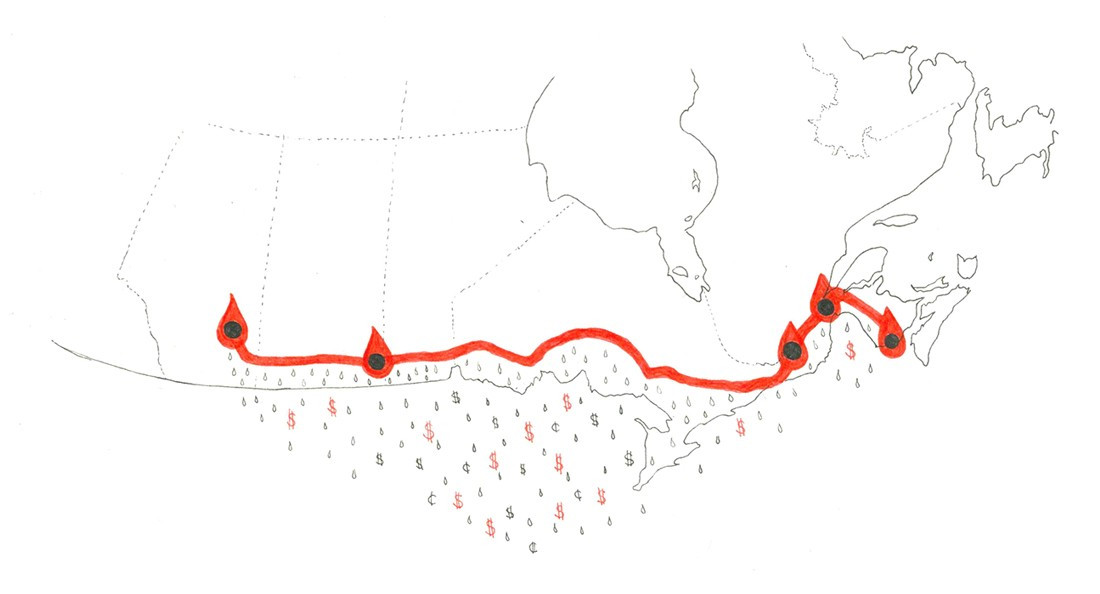Renewing the future of energy
Manitoba can help the transition to cleaner energy
On Oct. 5, TransCanada cancelled its $15.7 billion plans for the 4,000-kilometer proposed Energy East oil pipeline that would have transported oil from Alberta oil sands projects to supply refineries in the east.
The pipeline was cancelled because it wasn’t economically worthwhile. It didn’t make business sense.
By road, rail or pipeline, petroleum is an inherently hazardous product to transport. As an energy source, it emits greenhouse gases and contributes to air pollution.
The oil drilling method known as fracking has harmed human health and the environment and kept oil prices down at $50 per barrel, which is too low for many producers to consider running operations.
Demand is set to further decrease as Canada shifts away from an oil-based economy as lithium ion batteries become more commonplace.
Manitoba is in a unique position to support a transition to non-emitting, renewable energy in Canada.
Manitoba Hydro has invested in the Keeyask Generating Station, Bipole III and Manitoba-Minnesota Transmission Lines anticipating revenue from exporting electricity. Manitoba Hydro also offers a program to subsidize solar panel installation. Program participants receive a two-way energy meter that allows them to use electricity generated from the panels, or sell unused electricity to Manitoba Hydro.
The lithium ion batteries that retain stored electricity come with ethical concerns surrounding mining methods for the minerals. Likewise, hydroelectric dams create long-term effects to lands and communities impacted by lake diversions.
Addressing humanitarian and ecological concerns will be impossible without a transition to complete renewable energy, because the continual reliance on any finite resource will eventually be a problem. Dependence on nonrenewable energy creates a feedback loop that constantly demands further extraction of resources.
Meanwhile, a major barrier to electric, underdeveloped infrastructure, is being addressed by Tesla Motors. Tesla charging stations already exist in a coast-to-coast strip along the Trans-Canada Highway.
The cancellation of the Energy East pipeline is just the wake up call the country needs to step up its investments in renewable energy and set a standard as a world leader in generating and distributing a renewable and non-emitting energy.
In the United States, President Donald Trump has taken the wrong-minded approach of championing the coal industry, which is indefensible on either health or economic bases.
China, faced with major pollution in some regions, has taken a very different approach by helping make electric vehicles affordable with subsidies of up to 100,000 yuan ($19,000) toward a battery-powered vehicle. This level of subsidy by the Canadian government could boost demand for an expanded electrical grid and turn non-renewables into last resort resources.
China is likewise challenging the ability of the United States dollar to dominate oil transactions, which underlies the dollar’s status as the world reserve fiat currency. Some financial analysts speculate the Chinese ‘petroyuan’ could contest the American petrodollar this year.
It’s game over for petroleum fuel. The cancellation of the TransCanada Pipeline because it’s not economically viable is the kind of logic that a business-minded Progressive Conservative Manitoba government and a low-key business-minded Liberal Canada government can understand.
Published in Volume 72, Number 10 of The Uniter (November 16, 2017)







